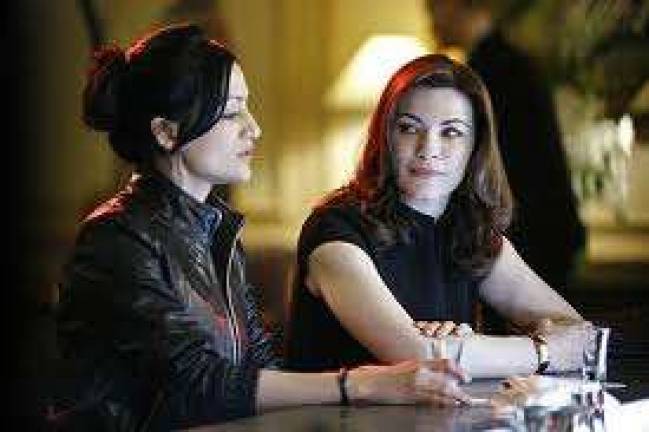Scrambled Signals: Why TV Comedies and Dramas Look a Lot Different Now

After doing a largely unscientific poll (i.e., I asked my friends and looked at this year's Emmy nominees), I figured it was about time to chronicle an ever-developing trend in the world of television. Many of the best comedies are no longer funny. And many of the most lauded dramas on the air are actually kind of hilarious. Think of the many cringe-inducing situations Lena Dunham's character has gotten herself into Girls, both at work and in the bedroom. Or Louis C.K.'s curmudgeonly approach to dating and childrearing on Louie. And these are two of the most acclaimed comedies on TV! There are other examples too: the often painfully acute teen crushes and breakups of Awkward. Or Larry David's similarly awkward exchanges with, well, everyone on Curb Your Enthusiasm. Or the vice-president's utter cluelessness on Veep. Or the life-and-death situations on Nurse Jackie. It's not that the traditional multi-camera sitcom formula isn't still deployed (see every Chuck Lorre sitcom on CBS) or that the mockumentary format doesn't still yield good product (witness Modern Family and Parks and Recreation), but it doesn't seem to be central to the conversation of hot TV. And compare it to the hour-long dramas on the air. Aside from the AMC shows ? particularly the stark Breaking Bad and The Killing ? just about every show is told in either a dominantly humorous vein or injects plenty of juvenile, sexual comedy so as to appear lighter than much of their comedic brethren on the dial. The Newsroom¸ for example, is practically farce. Whether addressing murder or corporate malfeasance, shows like The Glades, Psych, Suits, and White Collar are largely told in a tongue-in-cheek fashion. Mad Men is a deep, measured drama ? and yet Matthew Weiner's most talked-about moments from the last season involved Megan's "Zou Bisou Bisou" performance and Roger's acid trip. These were character-informing bits, but ones nonetheless played primarily for humorous effect. Furthermore, many drams play to the most prurient of interests. Downton Abbey and Game of Thrones may take place against the backdrop of destructive wars, but the shows' main focus is on who is bedding whom; save for The Good Wife, which traffics in high school gossip-level plots. Ditto for the new limited series Political Animals. And True Blood never found a raunchy sexual position it didn't like; even the Kama Sutra watches that show for tips. These are not criticisms. The changing rhythms of television comedy and drama aren't a measure of quality, but of storytelling pacing and tone. It's just clear that what used to be the lynchpin of hard-hitting stories now strive for levity, and vice versa. The godfather of balancing both was Steven Bochco's L.A. Law, which could throw in a sexual reference like the Venus Butterfly or a case regarding dwarf tossing and then integrate moving storylines invoking AIDS, race riots, discrimination or even the pitch-perfect season-long Earl Williams death penalty defense arc. The two sides always justified each other. And there's nothing wrong with the state of current television affairs. We've just moved to a new spot on the TV continuum, and it's time for us all to recalibrate.